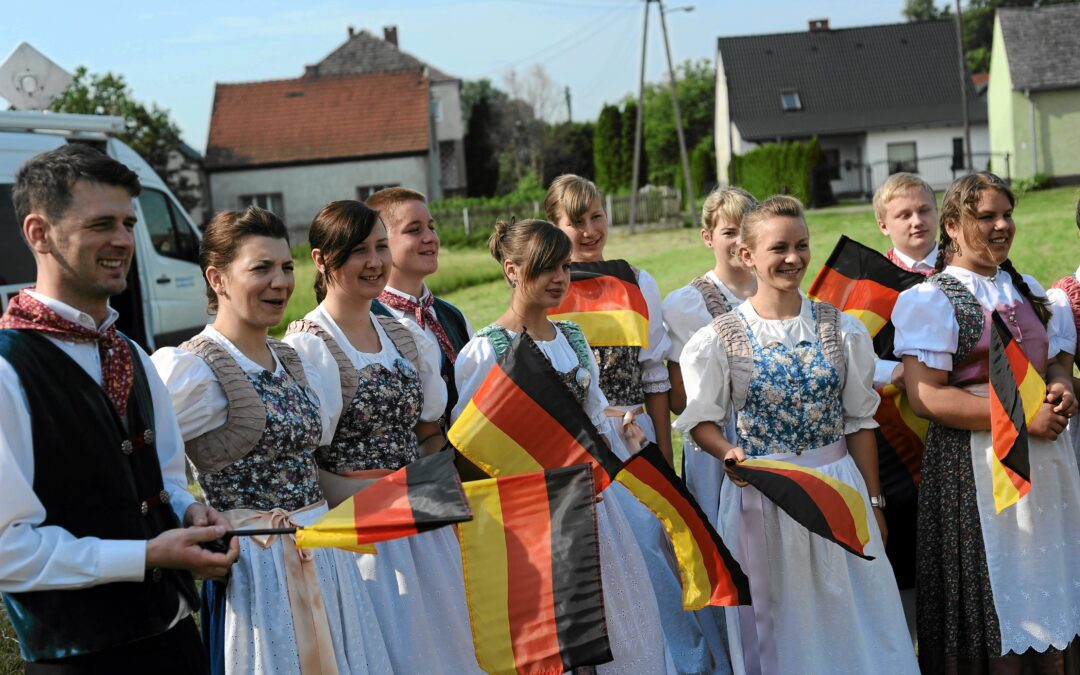For the first time since the early 1990s, Poland’s German minority will not have a representative in parliament after losing its solitary seat at Sunday’s elections. Their outgoing MP has called the loss “the end of an era”.
At every election since 1991 – which were the first fully free elections following the fall of communism – the German minority has won seats in parliament. Since 2005, it has been represented by a single MP, Ryszard Galla.
Because normally political parties are required to win 5% of the national vote to enter parliament, that has led many Poles to believe that the German minority has a legally guaranteed seat in parliament. But that is in fact not the case.
Instead, electoral committees representing recognised national minority groups are exempted from needing to reach the 5% national threshold. But beyond that, they compete in electoral districts with other candidates on the same terms.
Mniejszość Niemiecka pierwszy raz od 32 poza Sejmem. "To dla nas jakiś koniec" https://t.co/pwDNMxXSkC
— Onet Wiadomości (@OnetWiadomosci) October 17, 2023
In Sunday’s election, the German Minority (Mniejszość Niemiecka) electoral committee – which was standing candidates only in the Opole region of southwest Poland – received almost 25,800 votes, representing 5.37% of those cast in the area. That was not enough to win any of the 12 available seats there.
The German Minority electoral committee attributed its failure to the fact that many of its potential voters had instead supported national opposition parties in the hope of removing the ruling Law and Justice (PiS) party from power. PiS did indeed lose its parliamentary majority at the elections.
“The fate of a democratic Poland and its place in Europe was at stake,” said the committee in a statement published by Nowa Trybuna Opolska, a local newspaper.
“Many voters were faced with a dilemma: whether to choose the large parties, which were identified in the media as having an influence on the direction of the country, or a regional committee that only operates at the level of one province,” they added.
Official results from Poland's elections show that the ruling PiS party has come first, with 35%, but lost its parliamentary majority.
Three opposition parties, with a combined 54%, would be able to form a government.
For our full report click here ⬇️ https://t.co/VUDSi698ef
— Notes from Poland 🇵🇱 (@notesfrompoland) October 17, 2023
“Despite the loss of our representative in the Polish parliament, we firmly believe that the change that has taken place in [parliament] will bring about a democratisation of social life, an improvement in many fundamental pillars of the state and a return to elementary social dialogue,” concluded the statement.
According to the 2021 national census, 132,500 people in Poland identify as Germans, making them the third largest of the country’s traditional ethnic groups.
They have been in conflict with PiS since last year, when the government cut funding for the teaching of the German language to children from the German minority. PiS has also regularly engaged in anti-German rhetoric during the election campaign.
Galla, then outgoing German minority MP, thanked those who voted for him and lamented that “an era is coming to an end”. However, “our work for the region is not ending”, he added.
Szanowni Państwo!
bardzo dziękuję za każdy głos oddany na mnie i listę KWW Mniejszość Niemiecka w wyborach do Sejmu i Senatu!
Kończy się pewna era, lecz nie kończy się nasza praca dla regionu, dla naszego Heimatu!
To było fantastyczne 18 lat służby w Sejmie dla Was… pic.twitter.com/crwvq93Teh
— Ryszard Galla (@Ryszard_Galla) October 17, 2023
In Sunday’s election, PiS, which has been in power for eight years, won the most support of any individual group standing, with over 35%. However, that translated into only 194 seats, well short of the 231 needed for an independent majority.
Instead, a likely coalition of opposition groups – the centrist Civic Coalition (KO), centre-right Third Way (Trzecia Droga) and the Left – would be able to form a government with a combined 248 seats in parliament.
In Opole five seats went KO, four will be taken by PiS, while Third Way, The Left and the far-right Confederation (Konfederacja) will take one seat each.
Poland’s German minority has launched a campaign calling for the government to restore German teaching after cuts were made last year.
The education minister has responded by saying that it is Germany which is discriminating against its Polish population https://t.co/XCadd1HZdb
— Notes from Poland 🇵🇱 (@notesfrompoland) July 18, 2023

Notes from Poland is run by a small editorial team and published by an independent, non-profit foundation that is funded through donations from our readers. We cannot do what we do without your support.
IMain photo credit: Michał Grocholski / Agencja Gazeta

Alicja Ptak is deputy editor-in-chief of Notes from Poland and a multimedia journalist. She has written for Clean Energy Wire and The Times, and she hosts her own podcast, The Warsaw Wire, on Poland’s economy and energy sector. She previously worked for Reuters.



















